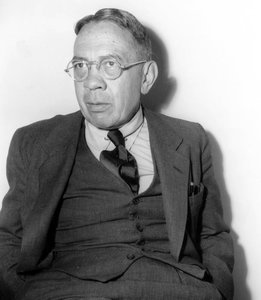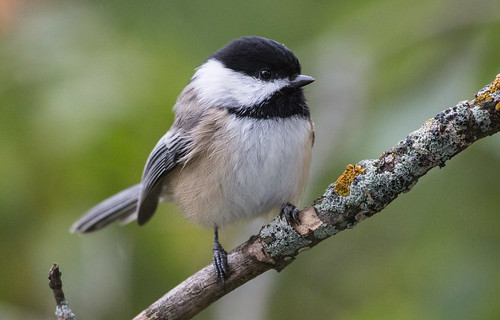 |
| Bernard DeVoto, from Wikipedia |
After the election last month, people I know have been talking seriously about fleeing the United States. I was in Uganda during the election, and several people brought up the possibility of just staying there, but overall, Costa Rica and New Zealand seem the most popular choices. People who have dedicated their entire lives to the protection of wildlife, natural habitat, clean air and water, or basic issues of human equality here in America are suddenly in a tragic state of fearful despair.
This made me search out an essay I'd chanced upon in a vintage copy of Woman’s Day magazine I found at a friend’s house a couple of years ago. “Homily for a Troubled Time,” written by Bernard DeVoto, was published in January 1951, another time when America was living in fear.
The entire wonderful essay, which I recommend reading in its entirety, is here, on the website of DeVoto's son, Mark. DeVoto was an impassioned conservationist and historian whose work is worth checking out, along with Wallace Stegner's 1974 The Uneasy Chair: a Biography of Bernard DeVoto.
DeVoto opens "Homily for a Troubled Time" with the Black Death, which, he noted, “has always been the greatest symbol of human helplessness and of universal fear. Until the present moment and the atom bomb.”
He writes about people who tried to escape the dangers of the Black Death or of civil unrest during the Great Depression by hiding out in refuges such as abandoned mines, and how empty their existence was, saying, “unreal fear is a greater danger than any real danger. We know this very well; but panic tugs at our minds, and the panic is worse than any horror it conjures up. For it could paralyze our thinking and our action.”
He continues:
Actually, the fear is not of tomorrow but of the day after, and that is its danger — for the fear of death can keep us from living. There is the old question: If you knew you were to die day after tomorrow, what would you do tomorrow? Only one answer has ever been sensible: Just what I would do if I did not know — go to the office, take the children to the park, go on with the job, get married, buy the house, have a baby. All other answers would be folly, and the most foolish of all would be: I would spend my last twenty-four hours at the bottom of an abandoned mine.He continues:
To anyone calculating the odds of life, one of the epitaphs in the Greek Anthology said three thousand years ago all that wisdom can ever say:
A shipwrecked sailor on this coast
Bids you set sail;
Full many a ship, when ours was lost,
Weathered the gale.
Although DeVoto did not mention chickadees, his final conclusions are pretty much that we should face any fears about the dangers we’ll face tomorrow as chickadees do. DeVoto writes,
At the base of personality, sheer animal faith in life makes us affirm life. There is always a pistol or a bottle of sleeping pills, but we vote to wake tomorrow and cultivate our garden. Indeed, the affirmation is deeper than personality, for body has a wisdom that resides in the nerves, the muscles, the very cells. They go on performing their function till death comes. Their function is the maintenance and renewal of human life. So is ours.
What does the asking price buy? At worst it will buy, day after tomorrow, the knowledge that we have lived an additional day — and if fear has not paralyzed us, that we got from it what we could, and did what could. The knowledge that the United States went out to meet its destiny, acting positively, not refraining from action in panic. That we acted as a sound, sane, resolute people. That as a people we affirmed the life which is in us and were members of one another; and that as individuals we have lived in a decisive time and not shrunk from our part in it. That we stood for the dignity of human experience.However life unfolds in America the day after tomorrow, the week after next, the month after that, we Americans are as inextricably bound to one another and to our country as chickadees are within their diverse multi-species flocks in their home range. If I’ve lived my life standing up for the protection of wildlife, natural habitat, clean air and water, and basic issues of human equality, why would I run away and hide now?
 |